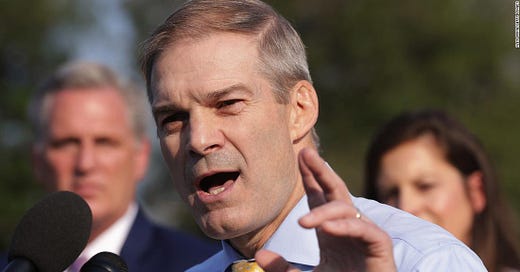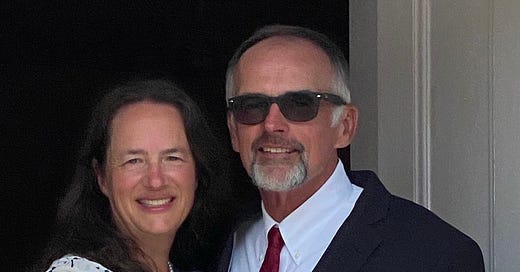
“It all began so beautifully,” Lady Bird remembered. “After a drizzle in the morning, the sun came out bright and beautiful. We were going into Dallas.”
It was November 22, 1963, and President John F. Kennedy and First Lady Jacqueline Kennedy were visiting Texas. They were there, in the home state of Vice President Lyndon Baines Johnson and his wife, Lady Bird, to try to heal a rift in the Democratic Party. The white supremacists who made up the base of the party’s southern wing loathed the Kennedy administration’s support for Black rights.
That base had turned on Kennedy when he and his brother, Attorney General Robert F. Kennedy, had backed the decision of the U.S. Court of Appeals for the Fifth Circuit in fall 1962 saying that army veteran James Meredith had the right to enroll at the University of Mississippi, more commonly known as Ole Miss.
When the Department of Justice ordered officials at Ole Miss to register Meredith, Mississippi governor Ross Barnett physically barred Meredith from entering the building and vowed to defend segregation and states’ rights.
So the Department of Justice detailed dozens of U.S. marshals to escort Meredith to the registrar and put more than 500 law enforcement officers on the campus. White supremacists rushed to meet them there and became increasingly violent. That night, Barnett told a radio audience: “We will never surrender!” The rioters destroyed property and, under cover of the darkness, fired at reporters and the federal marshals. They killed two men and wounded many others.
The riot ended when the president sent 20,000 troops to the campus. On October 1, Meredith became the first Black American to enroll at the University of Mississippi.
The Kennedys had made it clear that the federal government would stand behind civil rights, and white supremacists joined right-wing Republicans in insisting that their stance proved that the Kennedys were communists. Using a strong federal government to regulate business meant preventing a man from making all the money he could; protecting civil rights would take tax dollars from white Americans for the benefit of Black and Brown people. A bumper sticker produced during the Mississippi crisis warned that “the Castro Brothers”—equating the Kennedys with communist revolutionaries in Cuba—had gone to Ole Miss.
That conflation of Black rights and communism stoked such anger in the southern right wing that Kennedy felt obliged to travel to Dallas to try to mend some fences in the state Democratic Party.
On the morning of November 22, 1963, the Dallas Morning News contained a flyer saying the president was wanted for “treason” for “betraying the Constitution” and giving “support and encouragement to the Communist inspired racial riots.” Kennedy warned his wife that they were “heading into nut country today.”
But the motorcade through Dallas started out in a party atmosphere. At the head of the procession, the president and first lady waved from their car at the streets “lined with people—lots and lots of people—the children all smiling, placards, confetti, people waving from windows,” Lady Bird remembered. “There had been such a gala air,” she said, that when she heard three shots, “I thought it must be firecrackers or some sort of celebration.”
The Secret Service agents had no such moment of confusion. The cars sped forward, “terrifically fast—faster and faster,” according to Lady Bird, until they arrived at a hospital, which made Mrs. Johnson realize what had happened. “As we ground to a halt” and Secret Service agents began to pull them out of the cars, Lady Bird wrote, “I cast one last look over my shoulder and saw in the President’s car a bundle of pink, just like a drift of blossoms, lying on the back seat…Mrs. Kennedy lying over the President’s body.”
As they waited for news of the president, LBJ asked Lady Bird to go find Mrs. Kennedy. Lady Bird recalled that Secret Service agents “began to lead me up one corridor, back stairs, and down another. Suddenly, I found myself face to face with Jackie in a small hall…outside the operating room. You always think of her—or someone like her—as being insulated, protected; she was quite alone. I don’t think I ever saw anyone so much alone in my life.”
After trying to comfort Mrs. Kennedy, Lady Bird went back to the room where her own husband was. It was there that Kennedy’s special assistant told them, “The President is dead,” just before journalist Malcolm Kilduff entered and addressed LBJ as “Mr. President.”
Officials wanted LBJ out of Dallas as quickly as possible and rushed the party to the airport. Looking out the car window, Lady Bird saw a flag already at half mast and later recalled, “[T]hat is when the enormity of what had happened first struck me.”
In the confusion—in addition to the murder of the president, no one knew how extensive the plot against the government was—the attorney general wanted LBJ sworn into office as quickly as possible. Already on the plane to return to Washington, D.C., the party waited for Judge Sarah Hughes, a Dallas federal judge. By the time Hughes arrived, so had Mrs. Kennedy and the coffin bearing her husband’s body. “[A]nd there in the very narrow confines of the plane—with Jackie on his left with her hair falling in her face, but very composed, and me on his right, Judge Hughes, with the Bible, in front of him and a cluster of Secret Service people and Congressmen we had known for a long time around him—Lyndon took the oath of office,” Lady Bird recalled.
As the plane traveled to Washington, D.C., Lady Bird went into the private presidential cabin to see Mrs. Kennedy, passing President Kennedy’s casket in the hallway.
Lady Bird later recalled: “I looked at her. Mrs. Kennedy’s dress was stained with blood. One leg was almost entirely covered with it and her right glove was caked…with blood—her husband’s blood. She always wore gloves like she was used to them. I never could. Somehow that was one of the most poignant sights—exquisitely dressed and caked in blood. I asked her if I couldn’t get someone in to help her change and she said, ‘Oh, no. Perhaps later…but not right now.’”
“And then,” Lady Bird remembered, “with something—if, with a person that gentle, that dignified, you can say had an element of fierceness, she said, ‘I want them to see what they have done to Jack.’”
—
Notes:
https://www.discoverlbj.org/item/ctjd-19631122
Edward H. Miller, Nut Country: Right-Wing Dallas and the Birth of the Southern Strategy (Chicago: University of Chicago Press, 2015).










I was only 4, but I will never forget this being on the television for what seemed all day and all night. It is probably the only thing I really remember from age 4, but it truly affected me and it still does. We have to take seriously the calls for violence against judges, politicians, poll workers and others.
We are still in nut country.